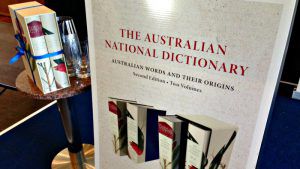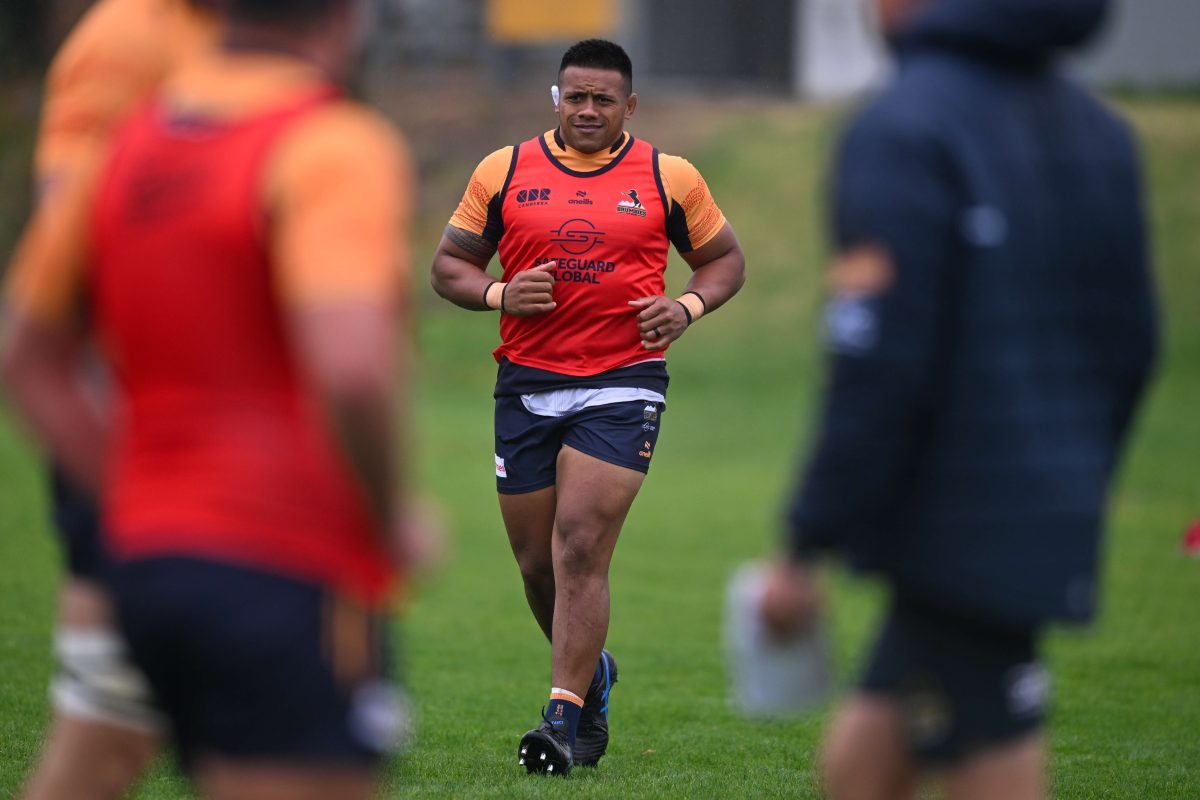MORE than 6,000 new Australian words and phrases, including words from more than 100 Indigenous languages, have been officially recognised with the release of the second edition of the Australian National Dictionary at Parliament House this morning.
Oxford University Press Australia and New Zealand Managing Director Peter van Noorden says the Australian National Dictionary is the primary repository of Australian English and the custodian of words and phrases unique to Australian history and culture.
“It is published by Oxford University Press Australia and New Zealand (OUP) and compiled by the Australian National Dictionary Centre at The Australian National University (ANU),” Peter said.
Launched in Parliament House by The Hon Dr Andrew Leigh on Tuesday, the second edition is the first comprehensive update of the Australian National Dictionary since 1988. It now has definitions and the history of 16,000 words and phrases unique to Australia.
Peter says the new edition is a crucial record of Australian culture and identity.
“It is vital that these words be recorded. If language is a definer of nationhood and the character of a people, then this new edition illustrates what it means, in words, to be Australian,” Peter said.
Chief Editor Dr Bruce Moore, a former Australian National Dictionary Centre Director, said the new publication tells Australians about their history and values and how they have changed.
“The dictionary shows how Australian words tell us much about Australian history and about Australian values and attitudes. Australian English is a marker of our national identity,” Bruce said.
“The Australian National Dictionary is the essential cultural and historical document that maps the words that define who we are, where we have come from and what we value.
“It traces words and phrases, including slang and regional words, to their original sources, including books, newspapers and diaries.”
Food and drink:
babyccino, battered sav, boston bun, chateau cardboard, chiko roll, chocolate crackle, copha, dagwood dog, Devonshire tea, fairy bread, goon of fortune, kransky, long black, neenish tart, nibblies, short soup, snag, snot block.
Terms for people:
bogan, bronzed Aussie, bush baptist, callithumpian, chardonnay socialist, checkout chick, firie, grey nomad, Mexican, Mrs Kafoops, mungo, pube, ranga, rurosexual, saltwater people, seachanger, seppo, skip, tradie.
The world of politics:
aspirational voter, branch stacking, captain’s pick, economic rationalism, Hawkespeak, Howard’s battlers, how-to-vote card, keep the bastards honest, micro party, mortgage belt, negative gearing, scrutineer, small-l liberal, tent embassy, true believer, two-party preferred, wombat trail.
Indigenous words:
akudjura (a bush tomato), bilma (a clapstick), bunji (a mate), dayang (a heath mouse), gubinge (a kind of plum), jarjum (a baby or young child), kumanjayi (a substitute name for a person who has died), migaloo (a white person), minga (a tourist), rakali (a water rat), tjukurpa (the Dreaming), yidaki (a didgeridoo). Other terms derived from Indigenous culture include: deadly, Invasion Day, secret women’s business, songline, welcome to country.
Phrases and idioms:
I don’t know if I’m Arthur or Martha; your blood’s worth bottling; do a Bradbury; carry on like a pork chop; couldn’t run a chook raffle; a cup of tea, a Bex, and a good lie down; dry as a dead dingo’s donger; happy as a bastard on father’s day; straight to the pool room; it would kill a brown dog; stacks on the mill; he wouldn’t know if a tram was up him unless the conductor rang the bell; he wouldn’t work in an iron lung.
Regional words:
Jennings German (ACT), houso (NSW), stubloon (NT), goose club (Qld), double-cut roll (SA), yaffler (Tas), hook turn (Vic), skimpy (WA).
*A catchphrase used to express the great value of a gift, prize, etc.
Who can be trusted?
In a world of spin and confusion, there’s never been a more important time to support independent journalism in Canberra.
If you trust our work online and want to enforce the power of independent voices, I invite you to make a small contribution.
Every dollar of support is invested back into our journalism to help keep citynews.com.au strong and free.
Thank you,
Ian Meikle, editor





Leave a Reply